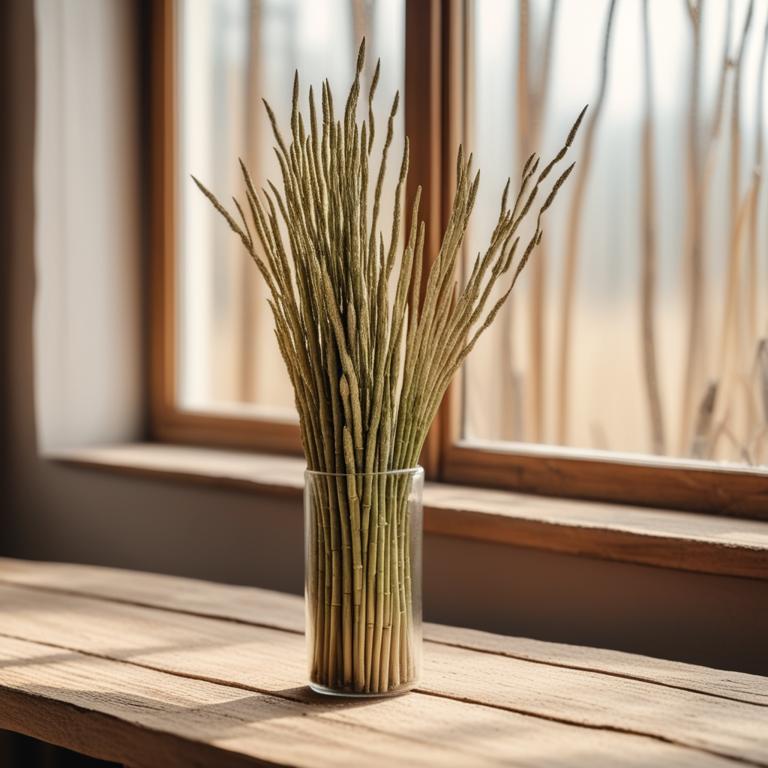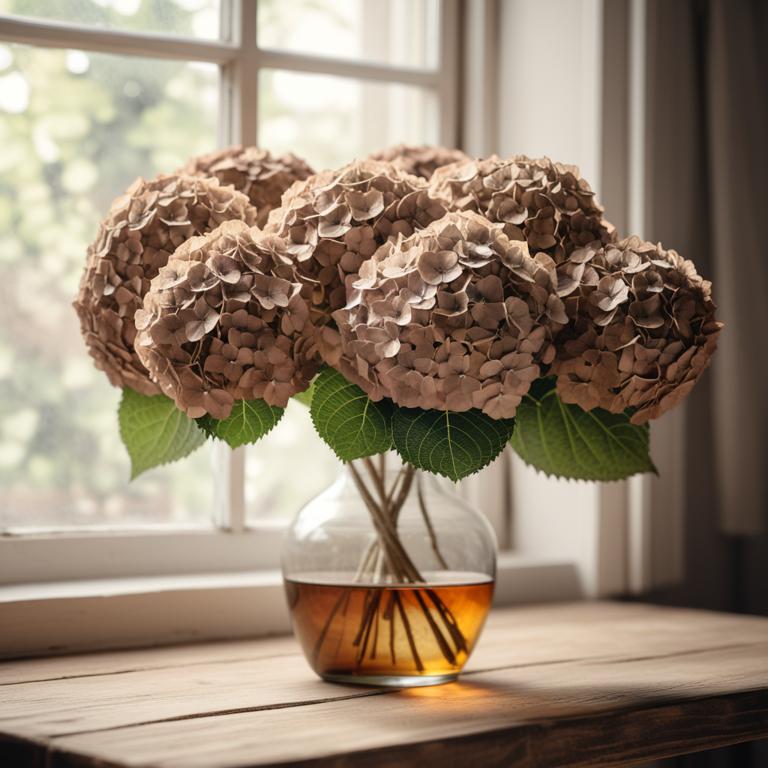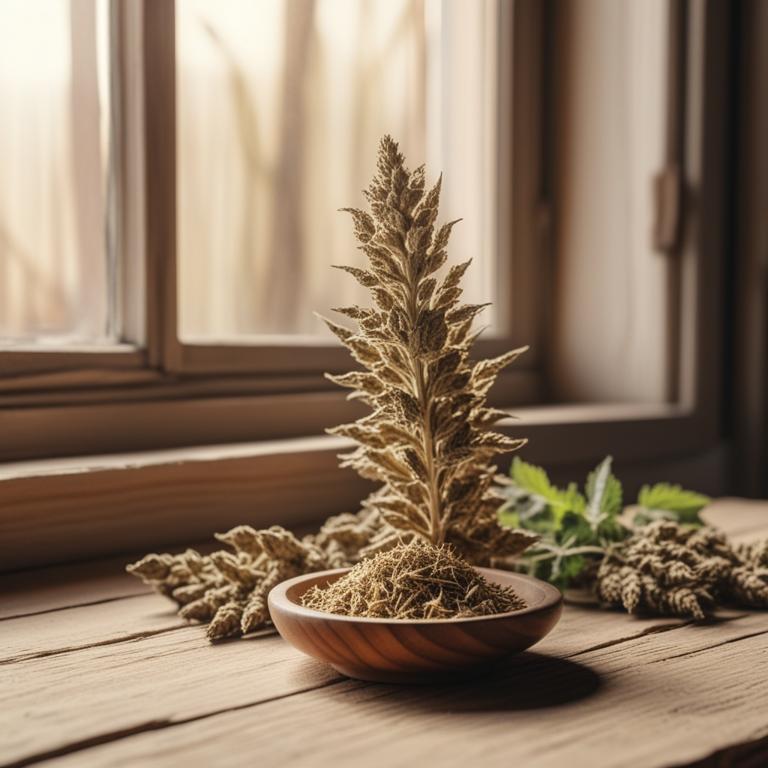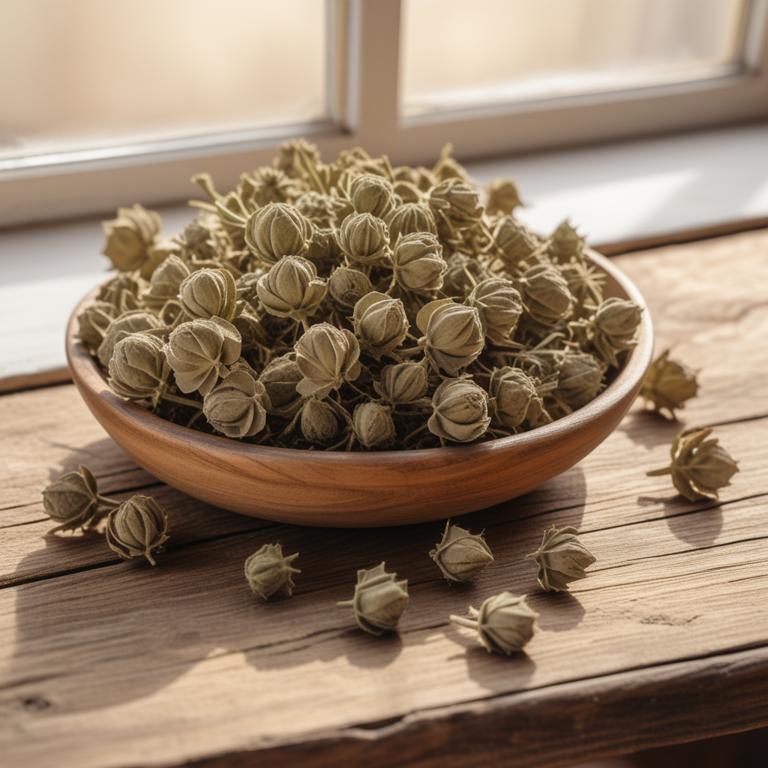Updated: Dec 1, 2024
Bladder Infection: Understanding the Causes and Herbal Remedies
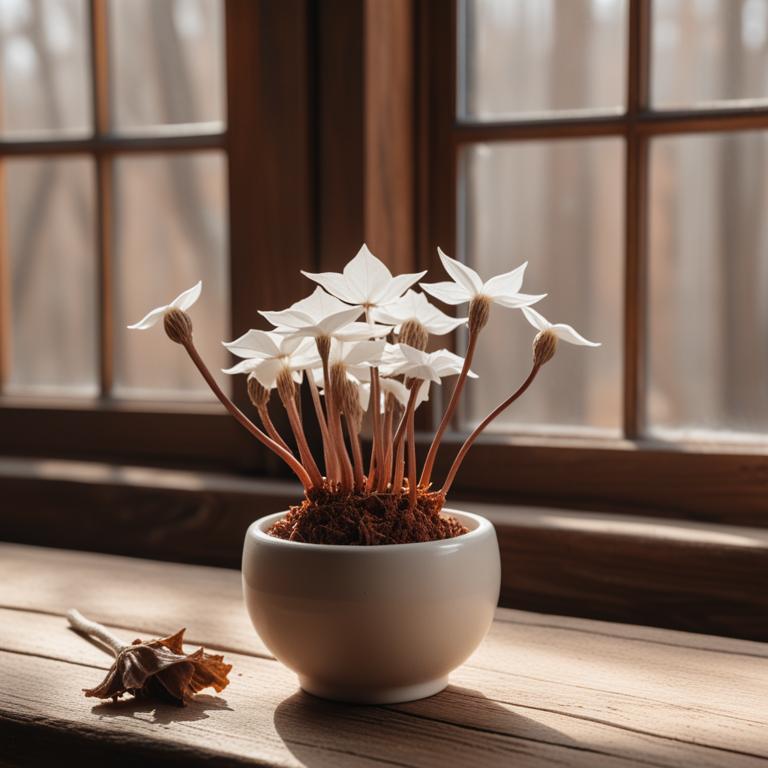
A bladder infection, also known as a urinary tract infection (UTI), is a painful and common condition where bacteria infect the bladder.
It can cause symptoms like burning while urinating, frequent urination, and a strong urge to urinate. If left untreated, it can lead to kidney damage and even sepsis. Bladder infections usually occur when bacteria from the bowel or vagina enter the urinary tract through the urethra. This can happen due to poor hygiene, sexual activity, or a weakened immune system. Women are more prone to UTIs because their urethra is shorter and closer to the anus. Herbal remedies like uva ursi, juniper berries, and marshmallow root have been used to treat bladder infections for centuries. Uva ursi, also known as bearberry, has antimicrobial properties that help combat the infection.
Juniper berries help to reduce inflammation and relieve pain. Marshmallow root has anti-inflammatory properties that soothe the bladder and urinary tract. These herbs can be used in various ways to treat bladder infections. Uva ursi tea is a popular remedy, made by steeping the leaves in hot water. Juniper berry tea can be made by steeping the berries in hot water, or taken in capsule form. Marshmallow root can be consumed as a tea or taken in capsule form. It's essential to note that while herbal remedies can help alleviate symptoms, they should not replace medical treatment.
Always consult a healthcare professional before using herbal remedies, especially if you have a severe infection or are pregnant or breastfeeding.
Table of Contents
- What causes the onset of bladder infection?
- What are the advantages of using herbs to cure bladder infection?
- What medicinal herbs are recommended for bladder infection treatment?
- Which herbal preparations are most frequently used to treat bladder infection?
- What herbs should you avoid using if you have a bladder infection condition?
- FAQ
What causes the onset of bladder infection?
The main causes of bladder infection are several, and understanding them can help prevent and manage the condition.
Bacterial infection is the most common cause of bladder infection, also known as cystitis. It occurs when bacteria, typically E. coli, enter the bladder through the urethra and multiply, causing inflammation and infection. Women are more susceptible to bacterial infections due to their shorter urethra, which allows bacteria to reach the bladder more easily. Urinary tract blockage is another significant cause of bladder infection. This can occur when the flow of urine is obstructed, often due to kidney stones, enlarged prostate, or other medical conditions.
When urine cannot flow freely, bacteria can multiply, leading to infection. Kidney stones, in particular, can cause blockage and increase the risk of bladder infection. These stones can cause severe pain and obstruction, making it difficult for urine to pass through the urethra and into the bladder. Neurogenic bladder is a less common cause of bladder infection, but it can be a significant one. This condition occurs when the nerves that control the bladder are damaged, leading to problems with bladder emptying and urine flow. As a result, bacteria can multiply and cause infection.
Neurogenic bladder can be caused by various conditions, including spinal cord injuries, multiple sclerosis, and Parkinson's disease.
What are the advantages of using herbs to cure bladder infection?
Using herbs to treat bladder infections can be a great option for some people.
One of the main benefits is that they can help reduce the pain and discomfort associated with the infection. These herbs often have anti-inflammatory properties, which can help calm the bladder and reduce swelling. They can also help fight off the bacteria causing the infection, which can help clear up the infection faster.
Additionally, some herbs have natural diuretic properties, which can help flush out the infection-causing bacteria from the urinary tract. This can help prevent the infection from coming back in the future. Some herbs may also have antibacterial properties, which can help kill off the bacteria that's causing the infection. This can be especially helpful for people who have recurring bladder infections.
Using herbs to treat bladder infections can also be a more natural and gentle approach compared to antibiotics.
What medicinal herbs are recommended for bladder infection treatment?
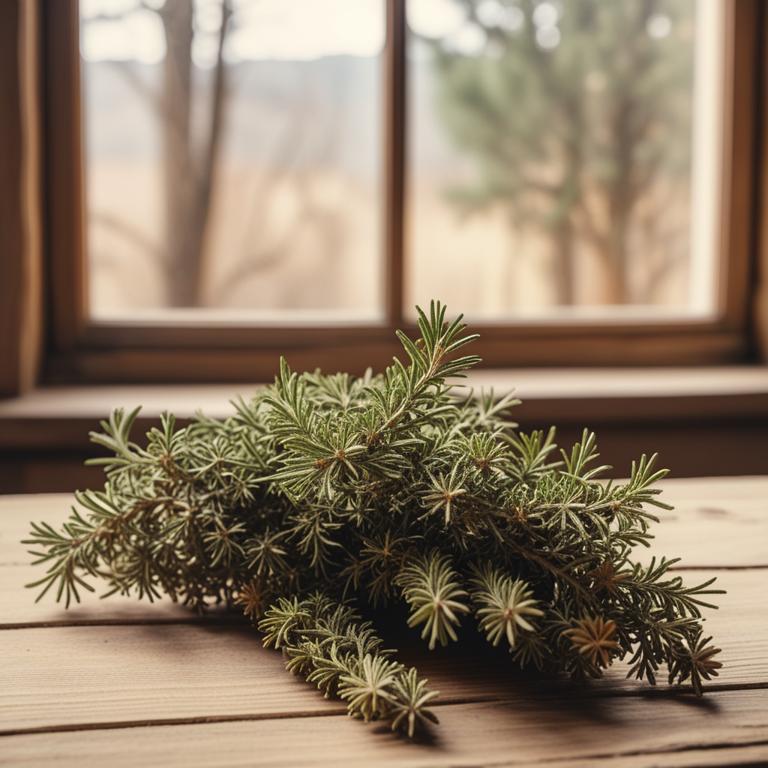
Herbs have been used for centuries to help with bladder infections, and for good reason.
One of the most effective herbs is Juniperus communis, also known as juniper berry. It has natural antiseptic properties that help kill off bacteria that can cause infections. Juniper berry also helps to reduce inflammation and ease pain in the urinary tract. Another herb that's been shown to be helpful is Equisetum arvense, also known as horsetail. It contains silica, which helps to strengthen the bladder and prevent infections from coming back. Horsetail also has anti-inflammatory properties that can help reduce pain and discomfort. Berberis vulgaris, or barberry, is another herb that's been used to treat bladder infections. It contains a compound called berberine, which has antibacterial properties that can help kill off bacteria that cause infections.
Barberry also helps to reduce inflammation and ease pain in the urinary tract. Arctostaphylos uva-ursi, or bearberry, is a herb that's been used for generations to treat bladder infections. It contains a compound called arbutin, which has antibacterial properties that can help kill off bacteria that cause infections. Bearberry also helps to reduce inflammation and ease pain in the urinary tract. Lastly, Hydrangea arborescens, or wild hydrangea, is a herb that's been used to help treat bladder infections. It contains a compound called tannins, which help to reduce inflammation and ease pain in the urinary tract. Wild hydrangea also helps to strengthen the bladder and prevent infections from coming back. These herbs work together to help the body fight off infections, reduce inflammation, and ease pain.
They can be used in various forms, such as teas, tinctures, or capsules, and should be used under the guidance of a healthcare professional.
Which herbal preparations are most frequently used to treat bladder infection?

When it comes to bladder infections, herbal preparations can be a great option for relief.
A decoction is a liquid extract made by boiling herbs in water, which is perfect for herbs like uva ursi and juniper berries that need to be heated to release their medicinal properties. These herbs have anti-inflammatory properties that can help soothe the bladder and reduce inflammation. Herbal tea is another popular preparation that can help with bladder infections. Tea is made by steeping herbs in hot water, which is gentler than boiling. Herbs like corn silk and marshmallow root are great for tea because they're soothing and can help calm the bladder. An infusion is similar to a tea, but it's made by steeping herbs in cold water or hot water for a longer period.
This method is great for herbs like parsley and dandelion that have a mild flavor and can help flush out toxins from the bladder. A tincture is a concentrated liquid extract made by soaking herbs in a solvent like vodka or glycerin. Tinctures are great for herbs like goldenseal and echinacea that have strong medicinal properties that need to be extracted quickly. Tinctures can be taken sublingually or added to water for relief. A salve is a topical preparation made from herbs that are mixed with a carrier oil or wax. Salves are great for herbs like calendula and plantain that have anti-inflammatory properties that can help soothe the skin around the bladder. Applying a salve to the lower abdomen can help relieve pain and discomfort.
These herbal preparations can be used individually or in combination to help manage the symptoms of bladder infections.
Additional Resources:
What herbs should you avoid using if you have a bladder infection condition?
If you have a bladder infection, it's best to steer clear of certain herbs that might make things worse.
For example, Silybum marianum, also known as milk thistle, can actually cause your urine to become more concentrated, making it harder for your body to flush out the infection. This is the opposite of what you want when you have a bladder infection.
Another herb to avoid is Glycyrrhiza glabra, or licorice root, which can raise your blood pressure and make your body hold onto fluids, including those that contain bacteria that cause bladder infections. Lavandula angustifolia, or lavender, can be soothing in small amounts, but in large doses, it can slow down your body's ability to get rid of the infection. Valeriana officinalis, or valerian root, can also have the same effect, making it harder for your body to fight off the infection.
Urtica dioica, or stinging nettle, can cause your body to hold onto water and electrolytes, which can make your bladder infection symptoms worse.
FAQ
Are there any specific herbs that can prevent bladder infection?
Some herbs, like uva ursi and juniper berries, may help prevent bladder infections.
Uva ursi has antiseptic properties that can reduce bacterial growth in the urinary tract. Juniper berries have diuretic properties, which can help flush out bacteria from the bladder.
These herbs can be consumed as tea or added to food.
Is it safe to use herbal remedies for bladder infection during pregnancy?
Using herbal remedies for a bladder infection during pregnancy is not recommended.
Many herbs can be harmful to the mother and the baby. Some herbs can cause bleeding, lower blood pressure, or affect the baby's development.
It's best to stick with what your body is used to and what you know is safe.
Are there any herbs that can reduce the frequency of bladder infection?
Some herbs like uva ursi and juniper berries may help reduce the frequency of bladder infections.
Uva ursi is thought to have antibacterial properties that can fight off the bacteria that cause UTIs. Juniper berries have anti-inflammatory properties that can help soothe and calm the bladder.
These herbs can be found in supplement form.
Related Articles

Fluid Retention: Causes, Herbal Preparations, and Holistic Treatments
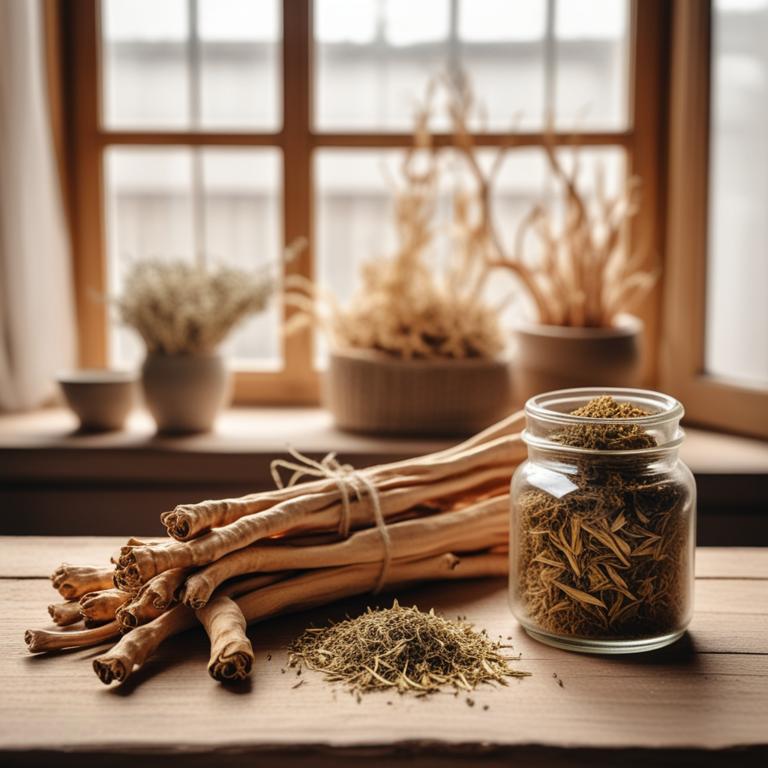
Prostatitis: Understanding the Causes and Using Herbal Preparations for Relief
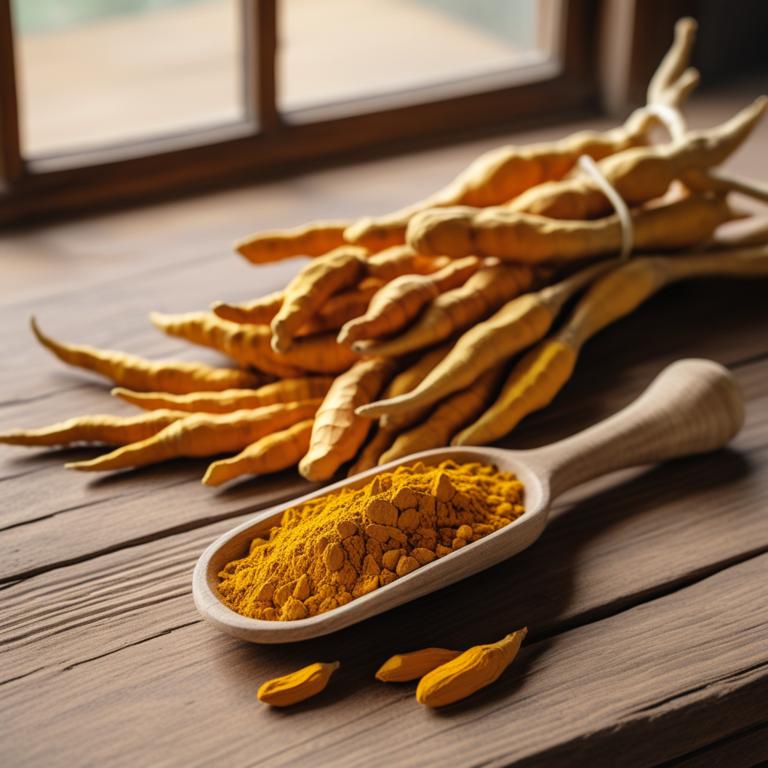
Causes and Treatment Options for Overactive Bladder Using Medicinal Herbs and Herbal Preparations
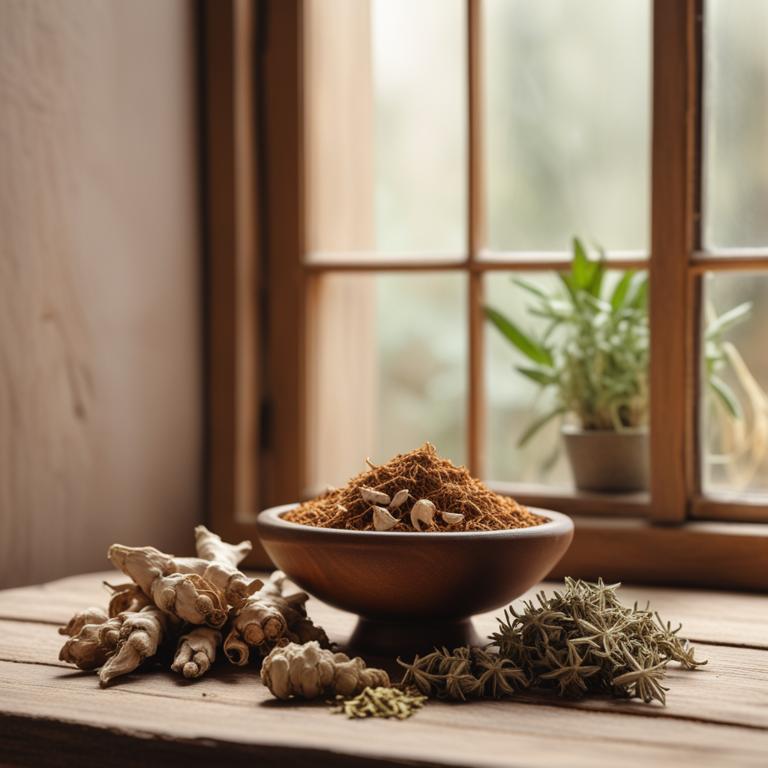
Natural Dehydration Relief: Causes, Herbs, and Medicinal Preparations
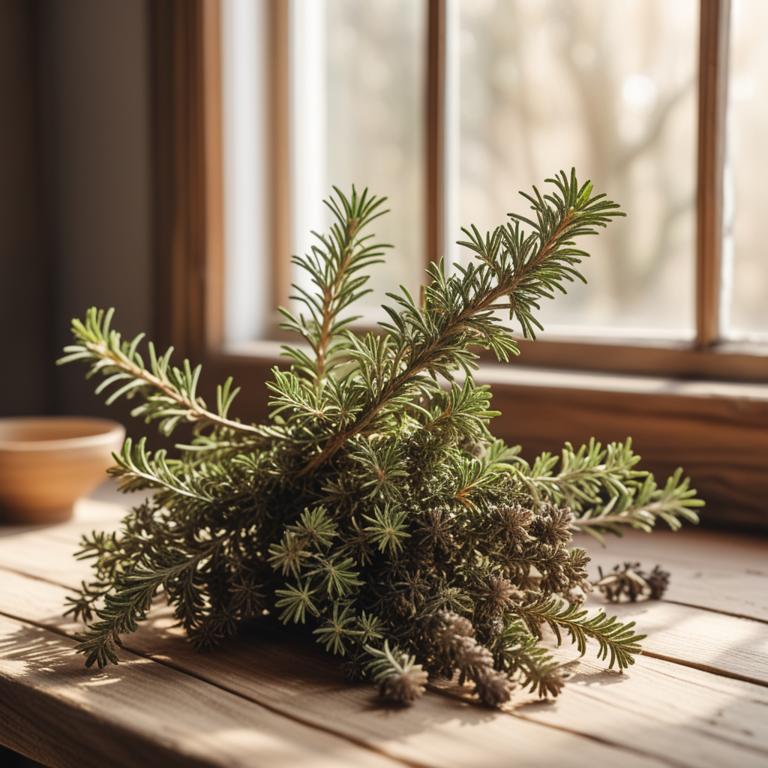
Cystitis: Causes, Medicinal Herbs, and Herbal Preparations for Relief and Recovery
